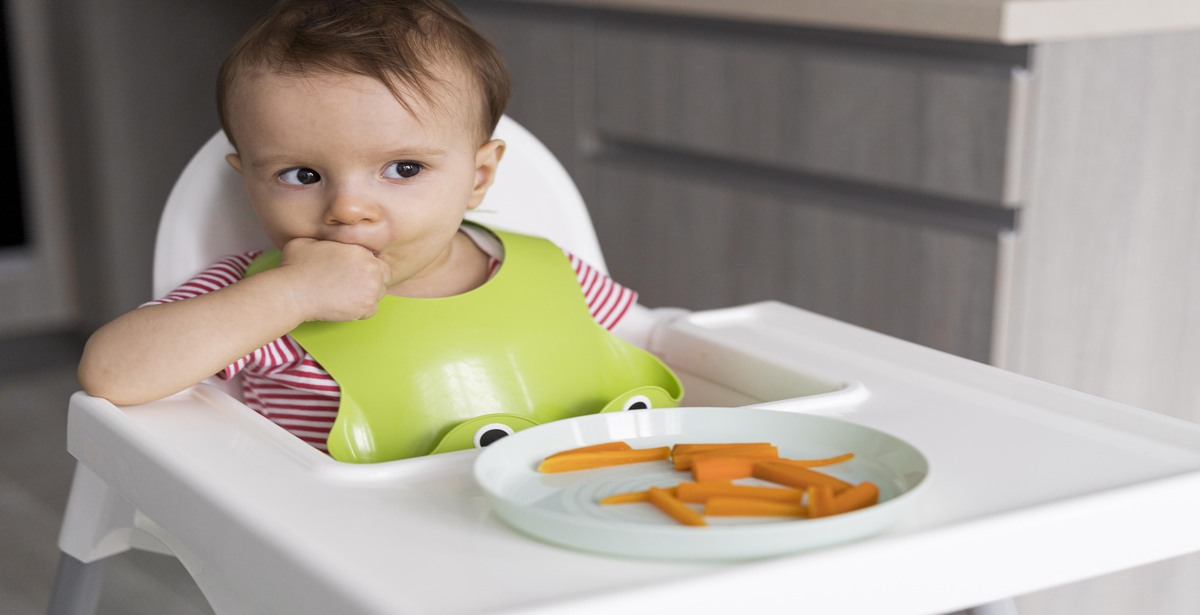Constipation in babies is a common concern that leaves many parents searching for natural remedies to ease their little one’s discomfort. One such remedy often suggested is carrots. But do carrots actually help with constipation in babies? Let’s dive into this topic in detail and explore how carrots can affect your baby’s digestion, along with tips for managing constipation effectively.
Understanding Constipation In Babies
Constipation in babies refers to infrequent or difficult bowel movements, often accompanied by hard stools and discomfort. It’s essential to identify the signs early to ensure your baby feels relief.
Common Symptoms of Constipation in Babies
- Infrequent bowel movements (fewer than 3 times a week in infants).
- Straining or crying during bowel movements.
- Hard, pellet-like stools.
- A firm or bloated belly.
- Fussiness or discomfort.
How Diet Affects Constipation In Babies
Your baby’s diet plays a significant role in digestion. Breastfed babies are less likely to experience constipation. But formula-fed babies or those transitioning to solid foods may face this issue due to a lack of fiber, hydration, or appropriate food choices.
Carrots, being a popular first food, often spark questions about whether they reduce constipation in babies. So, let’s get to it.
Can Carrots Help Constipation In Babies?
Carrots are rich in fiber and essential nutrients, making them generally beneficial for digestion. However, their impact on constipation in babies can vary significantly depending on how they are prepared and served.
- Cooked Carrots: Soft, steamed, or boiled carrots are easier to digest and may help ease constipation in babies by adding both moisture and fiber to their diet. This preparation helps support smooth bowel movements and is ideal for infants starting solids.
- Raw Carrots: On the other hand, raw carrots are harder for babies to digest due to their firm texture. In some cases, they may contribute to constipation by making stools firmer and more difficult to pass.
Understanding the right way to serve carrots is key to using them as a remedy for constipation in babies.
11 Best Benefits Of Carrots For Baby’s Digestion
Carrots can indeed help in easing constipation in babies. here’s how –
1. Encourages Gut Health
Carrots contain natural prebiotic properties that can support the growth of healthy gut bacteria, improving overall digestive health and reducing constipation risks.
2. Rich in Beta-Carotene and Antioxidants
The beta-carotene in carrots is converted to Vitamin A, which supports a healthy gut lining, ensuring smoother digestion and easier bowel movements.
3. High Water Content
Freshly pureed or steamed carrots retain water, which aids in softening stools.
4. Promotes Bile Production
Carrots naturally stimulate bile secretion, which helps in breaking down fats in the diet and promotes smoother digestion, reducing the chance of constipation.
5. Low in Allergens
Carrots are hypoallergenic and gentle on the stomach, making them less likely to cause any digestive distress that could exacerbate constipation.
6. Contains Natural Sugars
The natural sugars in carrots can attract water into the intestines, helping to soften stools and making them easier to pass.
7. Supports Electrolyte Balance
Carrots are rich in potassium, an essential electrolyte that helps maintain proper muscle contractions, including those of the digestive tract, promoting healthy bowel movements.
8. Boosts Overall Digestion
Carrots are naturally alkalizing and can help maintain a balanced pH in the digestive system, creating an environment conducive to regular bowel movements.
9. High in Pectin
Pectin is a type of soluble fiber found in carrots that not only softens stools but also regulates bowel movements by adding bulk and helping with consistency.
10. Rich in Fiber
Fiber adds bulk to stools, which can help promote regular bowel movements.
11. Gentle on the Stomach
Carrots are easy to digest when cooked properly, making them ideal for babies starting on solids.
How To Use Carrots To Manage Constipation In Babies
If you’re considering carrots to alleviate constipation in babies, here’s how to do it effectively:
1. Introduce Cooked Carrots
- Steam or boil carrots until they are soft.
- Blend them into a smooth puree.
- Avoid adding salt, sugar, or any seasonings.
2. Combine with High-Fiber Foods
Pair carrots with other high-fiber foods such as peas, prunes, or apples to enhance their stool-softening effects.
3. Keep Hydration in Check
Ensure your baby is getting enough fluids, whether through breastmilk, formula, or a small amount of water (for babies over 6 months). Adequate hydration is crucial for fiber to work effectively.
4. Maintain the Quantity
Overloading on carrots can sometimes lead to firmer stools due to their high starch content. Balance them with other fiber-rich foods.
Other Foods That Help Relieve Constipation In Babies
While carrots can be beneficial, other foods are also effective in managing constipation in babies:
- Prunes and Plums: Natural laxatives rich in sorbitol and fiber.
- Pears and Apples: High in fiber and gentle on the stomach. Serve them as purees or juice (in moderation).
- Peas and Green Beans: Great sources of dietary fiber for softening stools.
- Oatmeal: Helps regulate bowel movements with its soluble fiber.
When To Avoid Carrots For Constipation
In some cases, carrots may not be suitable for your baby:
- Raw Carrots: These can be difficult to digest and may worsen constipation.
- Excessive Consumption: Large quantities of carrots can lead to firmer stools due to their starch content.
If you notice your baby’s constipation worsening after introducing carrots, it’s best to try other remedies or consult a pediatrician.
Home Remedies for Constipation in Babies
If carrots alone aren’t enough to relieve constipation in babies, consider these additional remedies:
1. Massage Your Baby’s Belly
Gently rub their belly in a clockwise motion to stimulate digestion.
2. Exercise
Move your baby’s legs in a bicycle motion to encourage bowel movements.
3. Offer Warm Baths
A warm bath can relax your baby’s muscles and help ease discomfort.
4. Introduce a Balanced Diet
Include a mix of fruits, vegetables, and whole grains in constipation diet plan for babies to promote healthy digestion.
When To Seek Medical Advice
While occasional constipation in babies is normal, persistent symptoms should not be ignored. Consult a pediatrician if:
- Your baby hasn’t had a bowel movement in over a week.
- Blood is present in the stool.
- The baby appears to be in significant pain or distress.
Conclusion
Carrots can be a helpful food for constipation in babies when prepared correctly, but they should be part of a balanced constipation diet. However, every baby is different, and what works for one might not work for another. Always monitor your baby’s response to new foods and consult a healthcare professional for persistent digestive issues.




